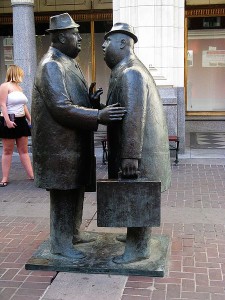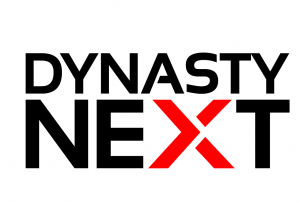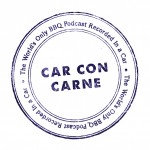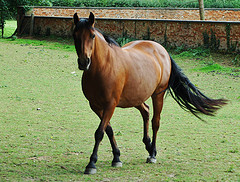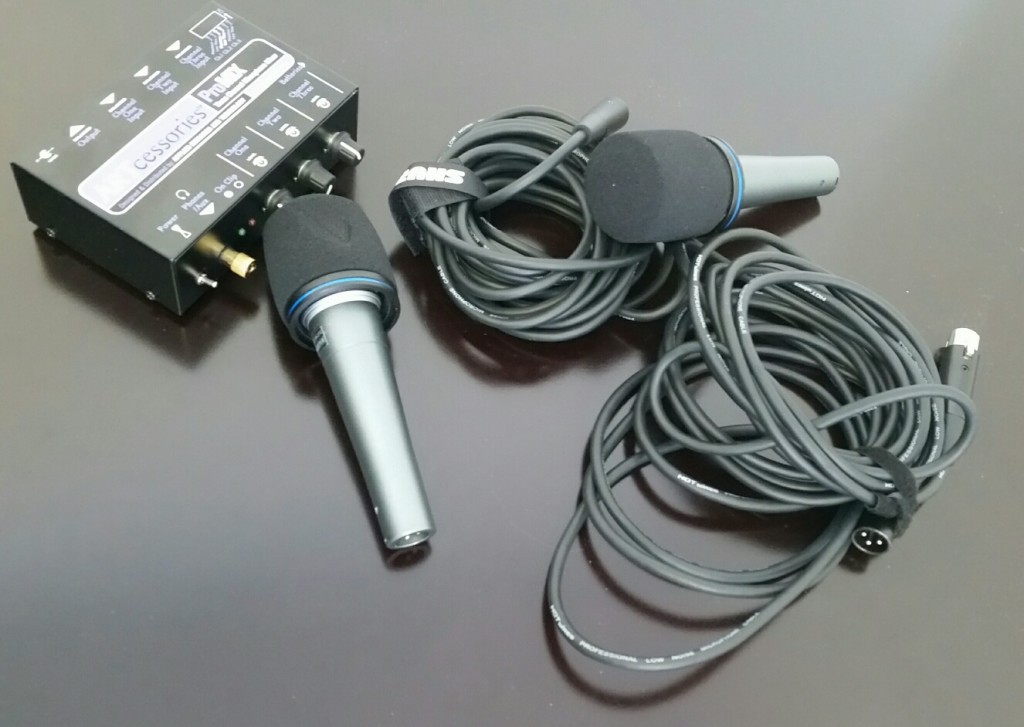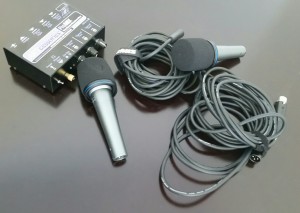Rivet Blog
As the value of podcasting continues to become more obvious, I moderated a panel on the topic (“Podcasting is the New Radio”) at this year’s CIMMfest (Chicago International Music & Movies Festival).
“Podcasting is the New Radio” certainly isn’t an original name or thought, but it is one that continues to increase in meaning. My panelists were current and former terrestrial radio talents: Jimmy “Mac” McInerney (Rebel Force Radio), Abe Kanan (Abe Kanan: On Hold) and Jaime Black (Dynasty Podcasts).
I had the great fortune to be part of James Cridland‘s panel, “Mobile Apps: Hearing from the Listener,” at the Radiodays Europe convention earlier this month. To summarize the panel’s focus, listeners are becoming more used to the ideas of customization and personalization. The challenge for radio, as Cridland put it, is how it can catch up.
For my part, I talked about retaining audience and the value of metrics to learn about what makes for effective content. The panel was a quick 50 minutes in the middle of a stacked three-day agenda. Here’s some of what I learned, heard and saw while walking the floor and bouncing from room to room.
Read More
One of podcasting’s unspoken rules flies in the face of what you were told in grade school: Don’t try so hard.
In 2004, the word “Podcast” appeared for the first time in history. Think about that for a second – the word “Podcast” isn’t even a teenager yet. The official definition is, “Podcasts offer in-depth reporting that is often informative and inspiring.”
In 2001, Steve Jobs announced the original iPod. By 2004, a genre of narrative audio that took the iPod’s coined name “podcasting” became a thriving mini-industry. Overnight it seemed, there were podcasts being launched about politics, sports, literature, comedy, and much more. According to USA Today, Apple has already surpassed 1 billion subscriptions for podcasts via iTunes.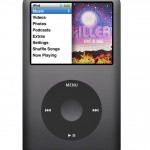
Podcasting remains a niche medium compared with the mass reach of radio and television. Approximately 39 million Americans (15% of the over-12 population) listened to a podcast in the past month, up from 9% in 2008.
Read More
Tips to make your podcast successful: An interview with Orbit Media’s Andy Crestodina
by James VanOsdol | February 1, 2016

Andy Crestodina
What steps can you take to elevate your podcast? To help answer that question, we turn to Andy Crestodina, co-founder of Orbit Media in Chicago. Andy’s a web strategist, author and marketer whose insights are must-reads for anyone in the digital space.
Over email, we talked about ways to market a podcast, common things podcasters do wrong, and the role of social media in expanding one’s audience.
I’ve struggled for a while with how to monetize my podcast. I don’t think it’s a stretch to say that (most) podcast creators aren’t used to hustling their creations for money.
With the majority of 2016 spread out in front of you, it’s a great time to refocus and get yourself organized.
I keep my shows organized using a Google Sheet. I prefer using Google Drive/cloud-based tools because that means I can access my info from anywhere. While my organization method is far from the only (or best) way to go about keeping a show on track, I wanted to share my thought process.
At the top of my sheet is the basic, top line information: a listing of all my shows, with notes specific to each one (date, guest, location, topics, pull quotes):
Time to start making resolutions for the new year. Here are five recommendations:
It would be easy to ignore working on your show while the rest of the world is checking out for the holidays, but you shouldn’t.
Your 3 Pillars to creating Engaging, Quality Content for Social Media (GUEST BLOG)
by Ira Haberman | December 14, 2015
A growing trend amongst people lately is to label themselves quite easily and freely as a social media expert. The truth is, nobody is the ultimate guru and expert as the landscape is in constant flux. It is hard to imagine that anyone can be some kind of swami. With technology that grows old within a short time and with platforms that are only relevant for a few years, I think there are some general lessons around audience, content quality/quantity and making effective use of social media that can really help you identify the basics. With that said, if you are savvy enough, you can accomplish amazing things and master the craft of social media.
Read More
Even if you have thousands of listeners for each show you produce (and if so, that’s awesome!), remember: You’re always talking to one person.
How should you add music to the end of your piece? Rivet production whiz George Drake, Jr. walks you through some best practices.
When it comes to podcasting, keeping a podcast going can come with a unique set of challenges. There’s the matter of finding a topic or topics to cover, or booking regular or rotating guests to interview. Then there’s actually finding the time to record, to edit, to format for iTunes or other platforms, and to promote on social media, only to turn right around and do it all over again a week later. There’s also the task of generating audience interest in your podcast among an ever-increasing number of other options vying for your online audience’s attention.
In radio, there is a tried and true practice to help on-air talent up their game: Airchecking.
The easiest way to make a connection with your listeners is to simply be you.
You experience the same things your audience does, and talking about those everyday things will make you instantly more relatable. Traffic congestion, rude people, making ends meet: How can you incorporate your life experiences into your show?
Read More
I started a podcast in May 2014 called Car Con Carne: The World’s Only Barbecue Podcast Recorded in a Car. The show’s title served as the elevator pitch: It’s a podcast recorded in my car outside barbecue restaurants. Yes, it’s ridiculous, but I believe podcasts should have a distinct position.
“Popped Ps” can kill a story. If you don’t have a pop filter on your mic, Rivet production whiz George Drake, Jr. shows you how to remove pops in an audio editor.
Read More
Hosting a show should never be a one-way dialog.
Wanna “hit the post?” Rivet production whiz George Drake, Jr. shows you how to use music for segment breaks.
Read More
The headline says it all: Podcaster Makes Solemn Promise To Improve Sound Quality Next Episode
I have a confession. I was, once, a radio presenter. I fact, I held this job down for over ten years. I was doing this alongside other things I was doing. One of those “other” jobs was as a trainer for the company’s computer playout system.
Read More
One of the toughest jobs in the world of audio and broadcasting is to sound like you’re not reading. Even when you are.
But your goal should be to write something that, when read, doesn’t sound like it was written and doesn’t sound like it’s being read. Because when you sound like someone talking about something you know instead of reading something that’s written, you sound more credible and authentic.
You can’t possibly know everything.
From the Excellence in Journalism convention: New tools, audio tips, delivery advice
by Charlie Meyerson | October 8, 2015
Make your peace with silence.
Read More
Which Rivet newsroom story got shared the most in September, and what was the secret to its success?
When it comes to booking interview guests, conventional wisdom says to book the person most conversant on the topic you’re covering. But what if there are a few guests who can get the job done? Who should you chase?
Read More
Recommendations for On-Air Oral Interpretation: ‘Speak in thoughts. Not in words.’
by Charlie Meyerson | September 25, 2015
With his permission, I’m sharing this news writing and delivery advice from legendary TV news manager Paul Davis. — CM
1. Never read “words.” Communicate “thoughts” and phrases.
Read More
Extreme weather, traffic jams, limited parking and large crowds are just some of the many variables that can come into play when heading out to an event. Ideally, it’s good to get there 15-30 minutes early. If it’s a major event, you may even have to show up a few hours ahead of time.
Always have a bottle of water, a granola bar and a fully-charged cell phone; you may be at the scene much longer than anticipated. Extra clothing (if possible) is a good idea, too, and not just because of the weather. I had the misfortune of standing too close to a drunk person at one particular sporting event.
Read More
The key to a successful interview on Rivet is to ensure it fights for its audience’s attention — that it’s engaging from the first word, so listeners get right up front a reason not to skip. That means standing features, like a show’s name, or a theme song, or an underwriting or sponsorship message, should be delayed until after those most interesting words (maybe including a highlight sound-bite from the interview to come.)
But once you have the audience’s attention, how do you keep it? How do you keep the interview moving and engaging? You’ll find as many different approaches as you’ll find hosts. But here’s an approach that’s served me well over the years
Read More
If you want your listeners to come back for the next episode, give them a reason.
Read More
Very few essays about talk radio begin with a quote from a long dead French novelist, but I feel it’s important that Jean Giraudoux gets the credit that he so richly deserves. That’s because he’s the person who said “The secret of success is sincerity. Once you can fake that you’ve got it made.”
Read More
As an amateur podcaster with small pockets, I know how difficult making a quality audio program can be. I’ve spent a fair amount of money on high-quality accessories, but I still have nowhere close to a professional studio. Many people resort to what they have: Cell phones and laptops as microphones and “quiet spaces” like garages or basements as studios. While these work out just fine for some people, here’s my list of five things I see as “must-haves” for creating a broadcast-ready podcast or radio show:
Read More
Sports stories are so easy to write, even robots can do it.
The Associated Press is using automated technology to write thousands of stories about college games. It uses software which takes game data and converts it into a narrative. Toss in a pound of stats, and it’ll crank out a story.
When you publish audio content, it may not be heard for a while. Someone may discover it hours later, or perhaps the next day or week. This calls for a different approach to time elements.
I recently published a piece about why the tech industry favors female names/voices in modern technology. To help you understand what’s involved with building content like this, I’ve broken down every step, from concept to publication. Before I get into that stuff, give the story a listen:
Which Rivet newsroom story got shared the most in July, and what was the secret to its success?
Read More
When confronted with a live microphone, people tend to alter their voices to sound more “radio-like.” If you’re one of those people, stop it. Trust yourself to be yourself.
Read More
As we’ve mentioned before in our Fair Use post, you need to be careful when sourcing external audio content. Rivet production whiz George Drake, Jr. shows you some essential resources and ways to get royalty-free audio.
Want to host a show but don’t know where to start?
The most effective web content, from blogs to podcasts, serves a niche audience.
Read More
If the past few months have been any indication, we’re in for a long, fluffy, gaffe- and poll-filled ramp-up to the 2016 presidential elections. As the former producer and social media manager for Ken Rudin’s Political Junkie podcast for nearly two years and a lifetime avowed news junkie, I’ve successfully slimmed down my Twitter lists
Read More
Want to use music to kick off your story or show? Rivet audio production ace George Drake, Jr. shows you how.
Critiquing yourself is one of the best things you can do to improve your show. Forcing yourself to listen–really listen–to your work allows you to learn from your successes and mistakes.
Read More
What’s the optimal length for your content? This Adweek piece says 22 minutes is the sweet spot for podcasters. Then again, this site says to keep it under 15.
The advice we give our team is to produce content that’s exactly as long as it’s interesting. If you’re bored, it’s a safe bet your listeners are, too. If you’re enthusiastic and engaged, keep on keepin’ on.
Which Rivet newsroom story got shared the most in June, and what was the secret to its success?
Read More
Just because you can find something on the on the web doesn’t mean you have the right to use it; crediting a source isn’t always enough.
Read More
Professionally-voiced intros can make a show “pop,” and help enhance a show’s brand.
Here are some ways to find voiceovers on the cheap. It’s important to point out we haven’t used all of these services; we’re merely compiling some of what’s “out there” for your consideration and scrutiny.
Editing words in a clean, impossible-to-detect, way is easier than you’d expect. In this video, Rivet production wiz George Drake, Jr. walks you through how to edit within (rather than between) words.
Ah, the post-game press conference. For athletes and coaches, a burden. For reporters, it can be a gold mine.
Maximizing these availabilities is especially important if you’re not covering a team every day. Here are some tips I’ve picked up from my years covering sports on getting the best post-game material.
Read More
You will lose audience if you can’t commit to delivering content on a dependable schedule.
Even the best show concepts can get torpedoed by erratic publishing schedules. Think of subscribing to a magazine, back in the day. You knew that your favorite magazine would be in your mailbox within the same general window every month.
Read More
Sharing content on social media is a must for audience-building. As the saying goes, “everyone in the audience has an audience.”
 The Rivet newsroom started an internal social media contest last year, with the goal of getting team members to put their best stuff on multiple platforms. The most-visited story on Rivet’s website each month (as determined by Google Analytics’ unique pageviews) gives the trophy (and 30 days worth of bragging rights) to the person (or people) responsible for creating the story.
The Rivet newsroom started an internal social media contest last year, with the goal of getting team members to put their best stuff on multiple platforms. The most-visited story on Rivet’s website each month (as determined by Google Analytics’ unique pageviews) gives the trophy (and 30 days worth of bragging rights) to the person (or people) responsible for creating the story.
Our most-visited story for May 2015 was written and produced by reporter Ron Brown:
Read More
Unless you’re specifically trying to include ambient noise in a story or piece of content, we recommend recording somewhere quiet.
Most non-industry audio creators don’t have a tricked-out, soundproofed, acoustically-perfect home studio. You can tip the odds in your favor by retreating to the most quiet place in your home (smaller rooms, even closets, tend to work well).
Read More
Maintaining consistent levels is critical when you’re using multiple sound sources in a recording. In this video, Rivet production wiz George Drake, Jr. walks you through how to match levels:
Depending on the content you’re producing, you may want to include phone guests.
The easiest way to call phone guests over a computer is Skype.
Skype allows you to make person-to-person video calls, as well as make and receive calls from landlines and mobile phones (a nominal subscription fee’s required).
Read More
Put the most interesting words at the top of your story. It’s the best way to grab your listeners’ attention, and it will help to keep them from drifting away.
So many times I’ll write copy and my coworkers’ll tap me on the shoulder and point out that the most interesting words aren’t at the top of my first paragraph. Think it over, and try different word combinations before settling for one.
Which of the these examples should you use?
Read More
Tough concepts are all part of being a reporter. Sometimes a subject is going to come your way that you don’t understand completely, but you’re going to need to know how to explain it your listeners.
There are a few ways to tackle hard ideas, and all of them include taking your sweet, sweet time.
Read More
When you voice content, make every effort to not sound like you’re reading. That holds true whether you’re voicing news, conducting an interview or hosting a talk show. Broadcasting can be a very intimate experience; it’s just you and the listener. Because of that, you want to be yourself every time you crack open a microphone.
Read More
Before you start planning a show, you’ll need to have a way to record it. The options are dizzying, and vary in both quality and cost.
While we couldn’t possibly come up with a “definitive list” of equipment resources, we wanted to offer up a handful of starter ideas, based on experience level: rookie and amateur (if you’re a pro, you probably feel pretty secure in the equipment choices you’ve made).








